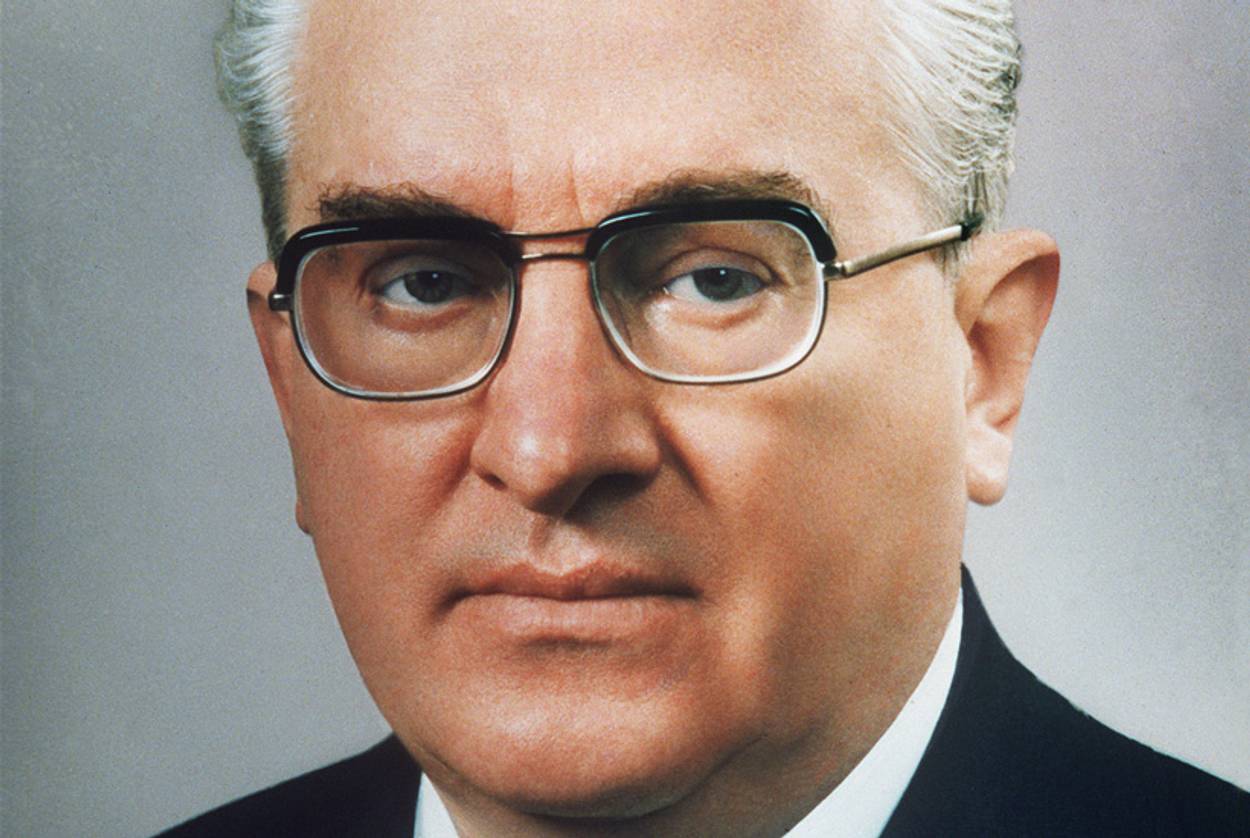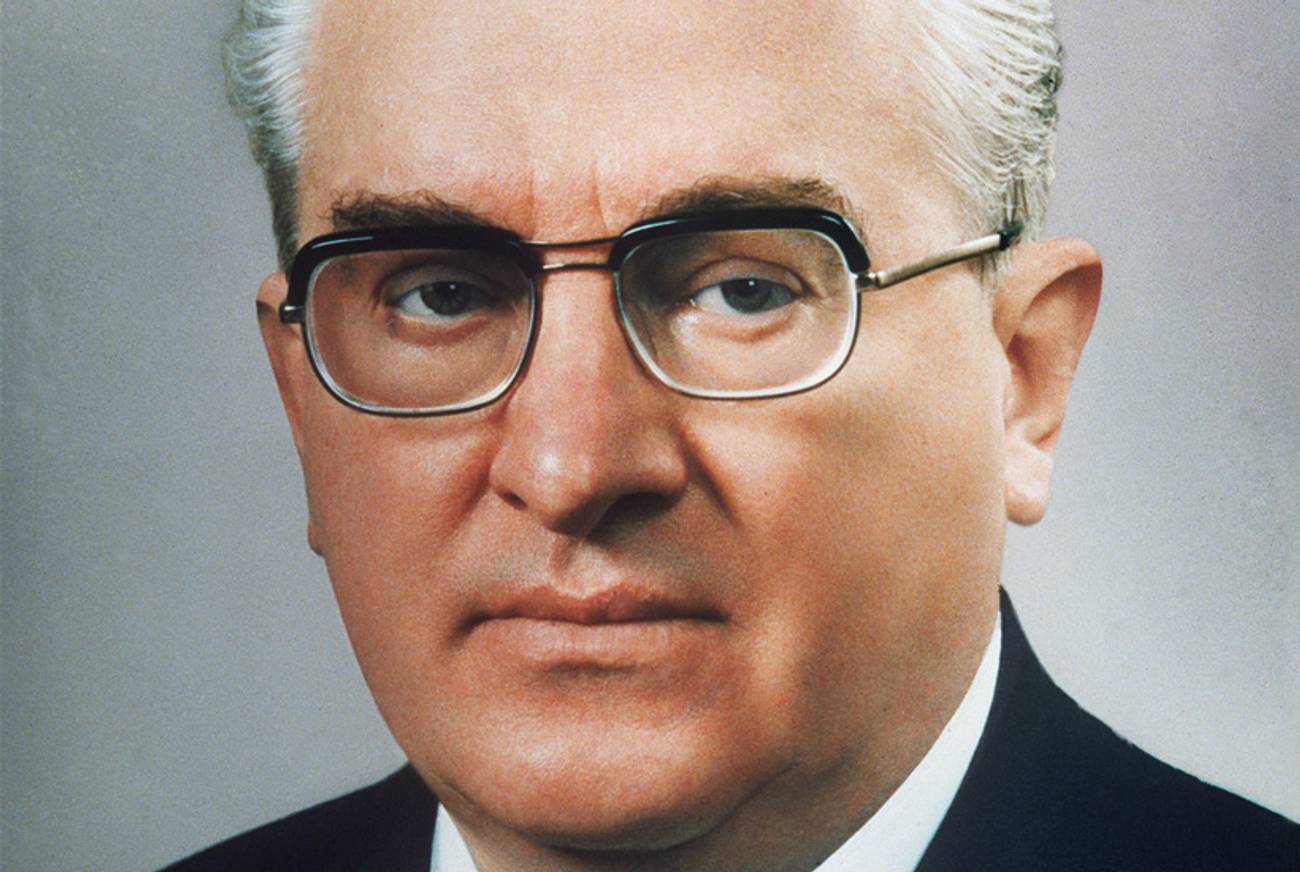Former Soviet Spy Sees the Long Arm of the KGB in Today’s Muslim Anti-Semitism
A new book by Lt. Gen. Ion Pacepa describes a Cold War effort to promote the ‘Protocols of the Elders of Zion’ in the Arab world




On a reporting trip to Gaza, Amman, and Damascus in 1994, I made a habit of asking Hamas and Muslim Brotherhood leaders whom I met with the following question: Did they think the Jews had a plan to dominate the world? I’ll never forget the enthusiastic answer of a pediatrician named Abdelaziz Rantissi, a Hamas leader, whom I met in his doctor’s office in Gaza. “Yes, indeed,” he said. “I have a copy right here.” And he pulled down from a shelf an Arabic-language copy of the Protocols of the Elders of Zion. It was a response I heard again and again.
What I didn’t know at that time was that the KGB had supplied the books and was spreading anti-Semitic and anti-Western filth as part of a plan to generate a widespread Muslim revolt. Now, in his new book Disinformation, Lt. Gen. Ion Pacepa, once the deputy chief of the Romanian intelligence service and one of the highest-ranking Soviet officials to defect to the West, describes a KGB disinformation campaign focused on the Protocols. Code-named Operation SIG—an acronym for Sionistskiye Gosudarstva, or Zionist governments—it was designed to seed anti-Semitic antagonism to the United States throughout the Muslim world.
Pacepa claims that the KGB and its subordinate services in the Eastern bloc spent more time on disinformation—dezinformatsiya, in Russian—than they did actually collecting intelligence. By carefully planting false stories about prominent leaders, especially those they feared, they sought to convince the public that the falsehoods were true. And they succeeded again and again. “This remarkable book will change the way you look at intelligence, foreign affairs, the press, and much else besides,” former CIA Director R. James Woolsey writes in the introduction.
The science of dezinformatsiya is complex, and Pacepa learned its rules from his Kremlin masters. Pacepa explains how Soviet leaders saw these efforts. “As that very clever master of deception Yuri Andropov once told me, if a good piece of disinformation is repeated over and over, after a while it will take on a life of its own and will—all by itself—generate a horde of unwitting but passionate advocates.”
Disinformation expands on Operation SIG, one of Andropov’s signature programs, which Pacepa described in an essay for the National Review in 2006, during the Second Lebanon War. “By 1972, Andropov’s disinformation machinery was working around the clock to persuade the Islamic world that Israel and the United States intended to transform the rest of the world into a Zionist fiefdom,” Pacepa writes. He explains that Andropov told him the goal was to “whip up their illiterate, oppressed mobs to a fever pitch. Terrorism and violence against Israel and America would flow naturally from the Muslims’ anti-Semitic fervor.”
The Romanians, Pacepa claims, were tasked with infiltrating Libya, Iran, Lebanon, and Syria—all countries where Romania was contributing expertise for infrastructure projects—with agents trained in anti-Semitic dezinformatsiya and terrorist operations. Pacepa’s intelligence service, known as the D.I.E., received an Arabic-language translation of the Protocols of the Elders of Zion, along with “documentary” material “proving that the United States was a Zionist country whose aim was to transform the Islamic world into a Jewish fiefdom.”
By 1978, when Pacepa left Romania for good, the KGB had dispatched 500 undercover agents to target Islamic countries, he writes. Most of them were engineers, medical doctors, teachers, and art instructors. They were part of a Soviet force Pacepa estimates at 4,000, whose job was to spread anti-Semitic and anti-Western hate. The KGB, he writes, distributed several hundred thousand copies of the Protocols in Arabic via these agents and others.
Disinformation has become “the bubonic plague of our contemporary life,” Pacepa writes. Lenin used it to bring communism to life. Hitler used it to “rationalize” the Holocaust. Khrushchev used it against the pope to “widen the gap” between Christians and Jews. Andropov used it to “turn the Islamic world against the United States and ignited the international terrorism that threats us today.” More recently, the conspiracy-laden Jew-hatred that permeates the Muslim world reared its head in the ugly rumors that Mossad was behind the 9/11 attacks. The so-called proof? The canard that 4,000 Jews received cell-phone messages early that morning warning to stay away from their jobs at the Twin Towers. That story was purveyed not only by Arabic language media, but by the conspiracy theorists like Thierry Meyssan, who wrote the French best-seller The Big Lie. As I unpacked that chain of disinformation in my book Preachers of Hate, I pointed out that Meyssan and his ilk conveniently ignored all the Jewish names in the public list of the 9/11 victims.
Henry Kissinger once playfully dismissed critics who accused him of paranoia. “Even a paranoid can have enemies,” he quipped to Time. Reading Disinformation will open one’s eyes to those enemies.
***
Like this article? Sign up for our Daily Digest to get Tablet Magazine’s new content in your inbox each morning.
Kenneth R. Timmerman is the author of 9 nonfiction books and 3 novels. He is currently working on a book on Benghazi.
Kenneth R. Timmerman is the author of 9 nonfiction books and 3 novels. He is currently working on a book on Benghazi.